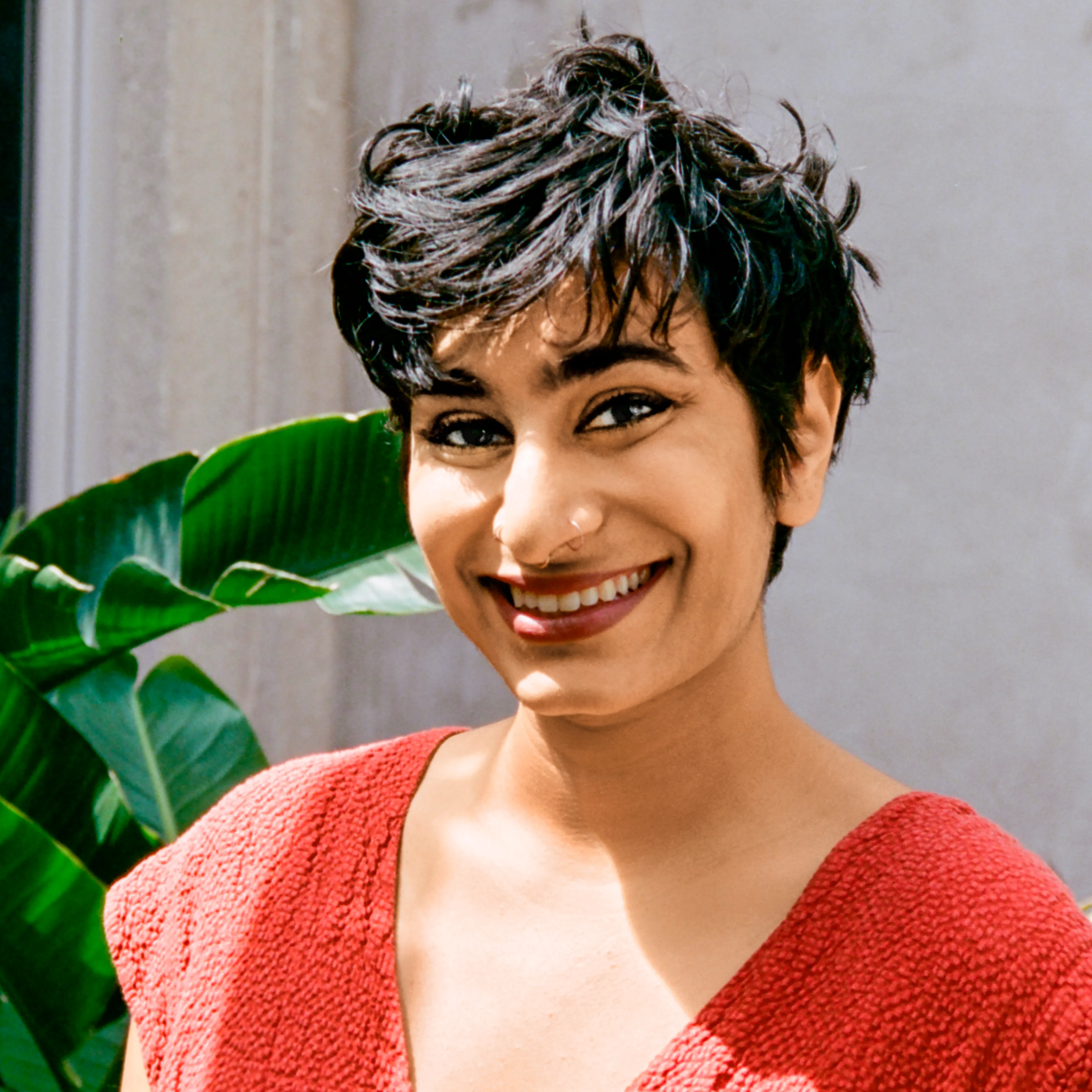Old Country Buffet, where our family
went on the days we saved enough money.
Everyone was in a good mood, even Ullu—
our uncle who never smiled or took off his coat
& dyed his hair black every two weeks
so we couldn’t tell how old he was. We marched
single file towards the gigantic red lettering
across the gravel parking lot to announce
our arrival. We, children carrying our rectangle
backpacks brimming with homework, calculators
& Lisa Frank trapper keepers, for we knew this was a day
without escape, spread out across all the booths
possible while our family ate & ate & snuck
food into the Tupperware they smuggled in
& no matter how we begged & whined
or the waitresses yelled or threatened to charge
us more money we weren’t leaving
until my greedy family had their fill.
O, Old Country! The only place
we could get dessert & eat as much of it
as we wanted before our actual meal.
The only place we didn’t have to eat all
the meat on our plates or else we were accused
of being wasteful, told our husbands
would have as many pimples as rice we left behind.
Here, our family reveled in the American
way of waste, manifest destinied our way
through the mac & cheese, & green bean
casseroles, mythical foods we had only
heard about on TV where American
children rolled their eyes in disgust. Here
we learned how to say I too have had meat loaf
& hate it, evidence we could bring back
to the lunch table as we guessed
what the other kids ate as they scoffed
at our biriyani. Here, the adults told
us if we didn’t like the strawberry shortcake
we could eat the ice cream or jello we could
get a whole plate just to try a bite
to turn up our noses & that was fine.
Here we loosened the drawstrings
on our shalwaars & gained ten pounds.
Here we arrived at the beginning of lunch
hour & stayed until dinner approached
until they made us leave. Here we learned
how to be American & say:
we got the money
we’re here to stay.
Published:
2018
Length:
Regular
Literary Movements:
Contemporary
Anthology Years:
2022
2023
Themes:
Family
Food
Immigration
Poems of Place
Literary Devices:
Anthimeria
the replacement of one part of speech for another, often referred to as a “functional shift.”
Caesura
a break between words within a metrical foot
Enjambment
a line break interrupting the middle of a phrase which continues on to the next line
Extended Metaphor
a metaphor that extends through several lines or even an entire poem
Quatrain
A stanza made of four lines.
Varied syntax
diverse sentence structure

